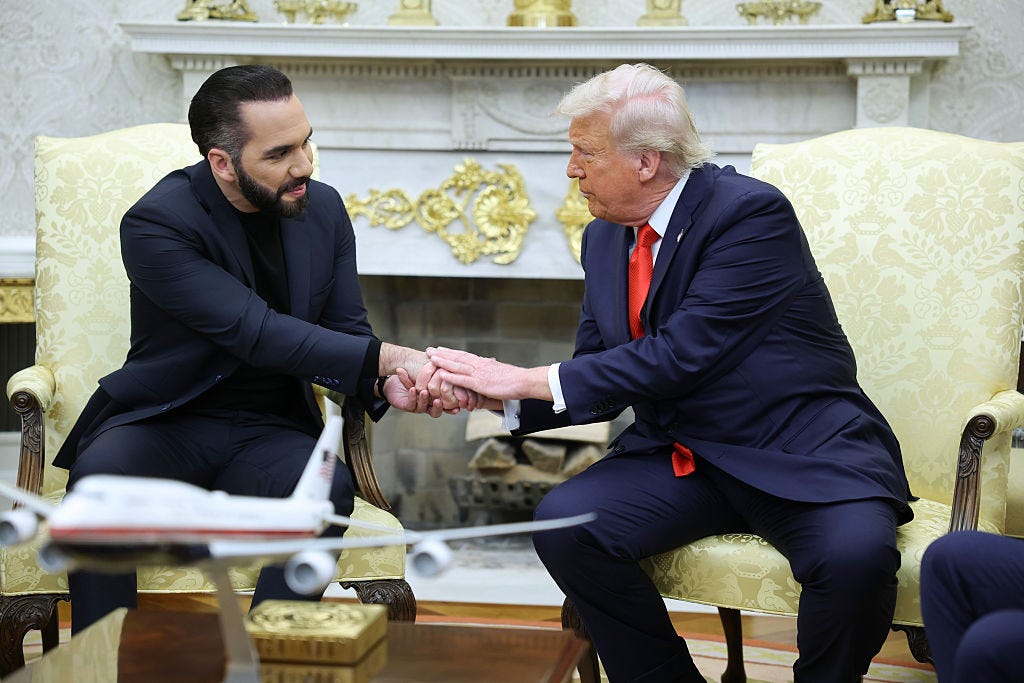History Restarted
The radical right and the problem of "successful" autocracies
Lawrence has updated Saturday’s article on the Iran conflict twice - on Sunday morning following the US bombing and again on Tuesday following claims of a ceasefire - you can read it here.
Anyone who’s read Francis Fukuyama’s “End of History and the Last Man” knows it’s far more prophetic than its pop culture representation. Published in 1992, in the aftermath of the Soviet Union’s collapse, his argument was not that liberal democracy would be immediately victorious everywhere and permanently, but that there was no alternative system that could work as well.
He anticipated backsliding against democracy and gave a good description of what was likely to cause it, correctly anticipating it would be driven by right-wingers. That’s why the full book title includes a reference to Nietzsche’s “last man” – an archetype of liberal passivity, seeking mere materialistic comfort, that the German philosopher saw as a slave mentality.
Fukuyama understood that the great challenge for liberal democracies was that they require people to accept universal recognition of all citizens and, in doing so, reject a belief in their superiority to others. For Nietzsche, by contrast, it was that very desire for superiority and dominance that drove human progress.
This need for superiority is core to the philosophy of the modern radical right, for whom Nietzsche is a regular reference point (at least for those who like to consider themselves intellectuals and spend a lot of time online). Techbro and Musk ally, Marc Andreessen, in his “tech-optimist manifesto”, that I’ve written about before, is explicit about this: “Our enemy is Friedrich Nietzsche’s Last Man”.
Their obsessive war against DEI is all about pushing back against liberals’ insistence on universal recognition, for e.g. minorities and women, because they believe it’s a hindrance to economic progress.
Fukuyama also spotted a related, but even more profound, potential flaw in his own argument. He was confident that no country could thrive for long without capitalism, but less so that it needed democracy – so perhaps there was a plausible alternative to liberalism. There were, he noted, countries in East Asia, particularly Singapore and China, that were running apparently successful capitalist economies but without the messiness of democracy:
“The most significant challenge being posed to the liberal universalism of the American and French revolutions today is not coming from the communist world, whose economic failures are evident for everyone to see, but from those societies in Asia which combine liberal economies with a kind of paternalistic authoritarianism.”
Fukuyama saw this as a specifically East Asian phenomenon, linked to deeply embedded Confucian values around the importance of family and service to community, citing Singapore’s first post-colonial leader Lee Kuan Yew who justified his authoritarianism on this basis. As a result he thought it was “doubtful whether such a political system would be exportable to other cultures that did not share Asia’s Confucian heritage”.
Yet in the thirty plus years since “The End of History” was written we’ve seen this phenomenon spread to countries with very different cultural histories. The Gulf state monarchs are an obvious example, flush with oil money that allows them to bribe their subjects into submission while buying up the assets of liberal democracies. There are others, though, that did not have the luxury of resource wealth but have mixed capitalism with autocracy to apparent effect, like Rwanda, with one of the fastest growing economies in Africa, or El Salvador, where the authoritarian President Nayib Bukele is enormously popular (pictured above with Trump). It is not a coincidence that these are the two countries to which the UK and US governments have tried to deport people.
In turn these apparent success stories are influencing radical right parties in Western democracies. So in the rest of this post I want to consider the emergence of these modern capitalist autocracies, whether their success can be sustained in the way Singapore’s has, and ask how much of a threat they represent to the future of liberal democracy.
Keep reading with a 7-day free trial
Subscribe to Comment is Freed to keep reading this post and get 7 days of free access to the full post archives.


